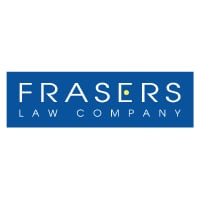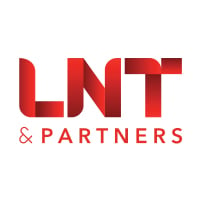
Head of legal and compliance | Eximbank



Tran Van Nhien
Head of legal and compliance | Eximbank
Team size: 60-70 members
What are the most significant cases, projects, or transactions that you and your legal team have recently been involved in?
During the past year, my team has been closely involved in several cases that have had a direct impact on the organisation’s growth, risk management, and regulatory alignment.
One of the most significant cases I have worked on concerns a long-standing dispute over the enforcement of a letter of credit (L/C) issued by the organisation. This dispute has lasted for more than a decade and, due to its complexity and implications for the Vietnamese banking industry, has become one of the most closely observed legal cases in the sector.
The case centred on a fundamental legal question: whether the payment obligation under a letter of credit should remain valid even if the underlying sales contract is cancelled. My organisation was drawn into litigation that ultimately led to the establishment of a landmark judicial precedent in Vietnam.
Leading my team through this dispute, I worked tirelessly to build and defend our position – engaging with external counsel, regulators, and other stakeholders to ensure that the case was resolved favourably for the company and that the principles of international banking practice were upheld in Vietnam.
Ultimately, the court ruled in our favour. The outcome represented a significant success not only for our company but also for Vietnam’s financial sector more broadly. The court reaffirmed that the validity of a letter of credit is autonomous and must remain independent from the underlying sales contract. In doing so, it safeguarded the organisation’s reputation and reinforced confidence within the financial industry that letters of credit in Vietnam can be relied upon as secure and trustworthy instruments.
Looking back, what makes me most proud is not only the legal victory itself, but the perseverance, collaboration, and professionalism that brought us to that result. It was a powerful reminder of how an in-house legal team can shape legal standards and contribute to strengthening an entire industry.
How do you approach managing legal aspects during periods of instability or crisis to ensure the organisation’s resilience?
Crisis is a phase that not everyone experiences — but for those who do, it becomes a defining test of values and resilience. In any organisation, leadership, strategy, or risk appetite may evolve over time; however, what must never change are the core values, mission, and purpose that underpin its existence.
From my perspective, for a legal consultant, this means never allowing legal decisions to be driven solely by money or short-term pressure. Our duty is to uphold ethical standards, protect the organisation’s integrity, and maintain trust. Only by remaining steadfast in these principles can we guide the organisation in the right direction and ensure compliance with the law, while minimising the influence of external or material pressures.
In fact, the more unstable the environment, the more visible and vital the role of the legal department becomes. These moments demand strength, clarity, and balance — making timely, decisive calls while remaining adaptable to change. For me, resilience in times of crisis is not only about safeguarding the organisation but also about supporting the people I lead — the colleagues who depend on my judgment and composure. I strive to ensure my team feels supported, valued, and empowered, enabling us to face challenges collectively.
By holding true to our values and combining firmness with flexibility, we can transform periods of instability into opportunities to reinforce the organisation’s foundations and strengthen its future.
What do you think are the most important attributes for a modern in-house counsel to possess?
In my view, the foundation of a modern in-house counsel lies in integrity. High ethical standards must guide every decision, particularly the ability to remain objective and independent. Legal advice and approvals should never be influenced by money, material benefit, or external pressure. Without integrity, the legal function cannot earn trust or truly protect the organisation.
Equally essential is a commitment to continuous learning. Laws, regulations, and business models evolve constantly, and an in-house counsel must remain curious, refine their expertise, and encourage colleagues to do the same. A team that learns together becomes stronger, more adaptable, and better equipped to face new challenges.
Finally, as a team leader, I believe true success stems from connection. It is about building meaningful relationships with colleagues and junior team members, and finding common ground with those who share similar values and approaches to work. I make it a priority to support my team, treat everyone with fairness and respect, and give them space to grow. I strive to foster genuine bonds that extend beyond daily responsibilities – whether through team-building activities or simple gatherings outside the office. These shared experiences build trust, unity, and a sense of belonging, allowing the team to face any challenge together with confidence and cohesion.
Based on your experiences in the past year, are there any trends in the legal or business world that you are keeping an eye on that you think other in-house lawyers should be mindful of?
One big trend I have noticed is how quickly things are changing, at least in my country, from new government policies to shifts in eco-socio dynamics. For in-house lawyers, this means we cannot stay on the sidelines. We need to stay close to the business, follow new regulations as they come out, and be ready to adapt our advice so the organisation can move forward with confidence. At the same time, we must keep our independence and ensure the decisions we make remain relevant with law and ethics.
Another important trend is the rise of generative AI and digital transformation. These tools are already reshaping the way legal teams work. On the one hand, they can assist in routine tasks such as drafting, research, or document review. On the other hand, they open up opportunities to work faster and more accurately if we know how to use them well. I believe lawyers who treat AI as an assistant rather than a replacement will have more time to focus on judgment, strategy, and solving complex issues that require human insight.
To keep up, I think the key is continuous learning and adaptability. We need to update our skills, learn how to use new technologies responsibly, and guide our teams to do the same. If we master these new-age tools instead of fearing them, we can turn them into powerful aids and help our organisations thrive in a fast-changing world.
Head of legal and compliance | Eximbank
Head of legal and compliance | Eximbank